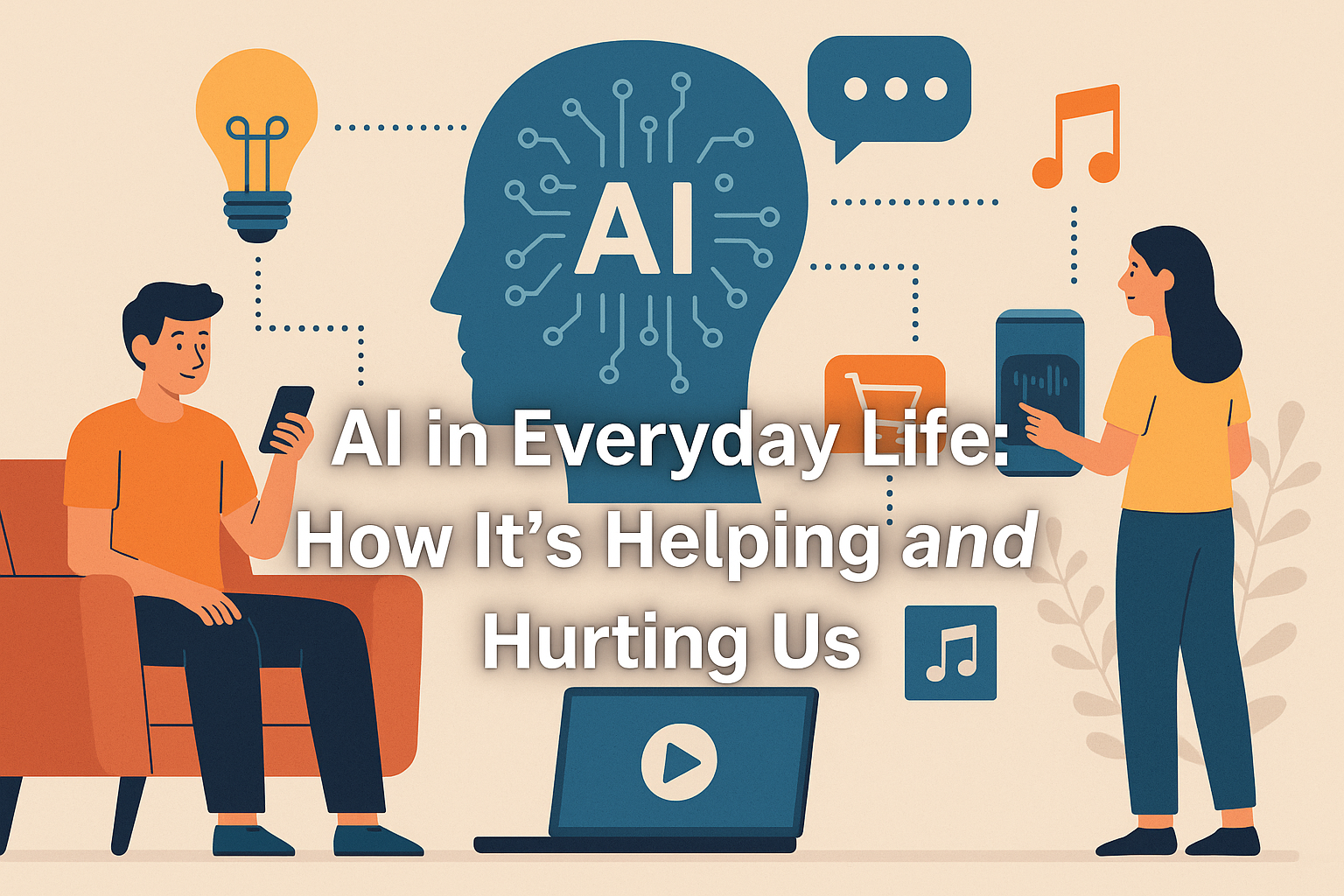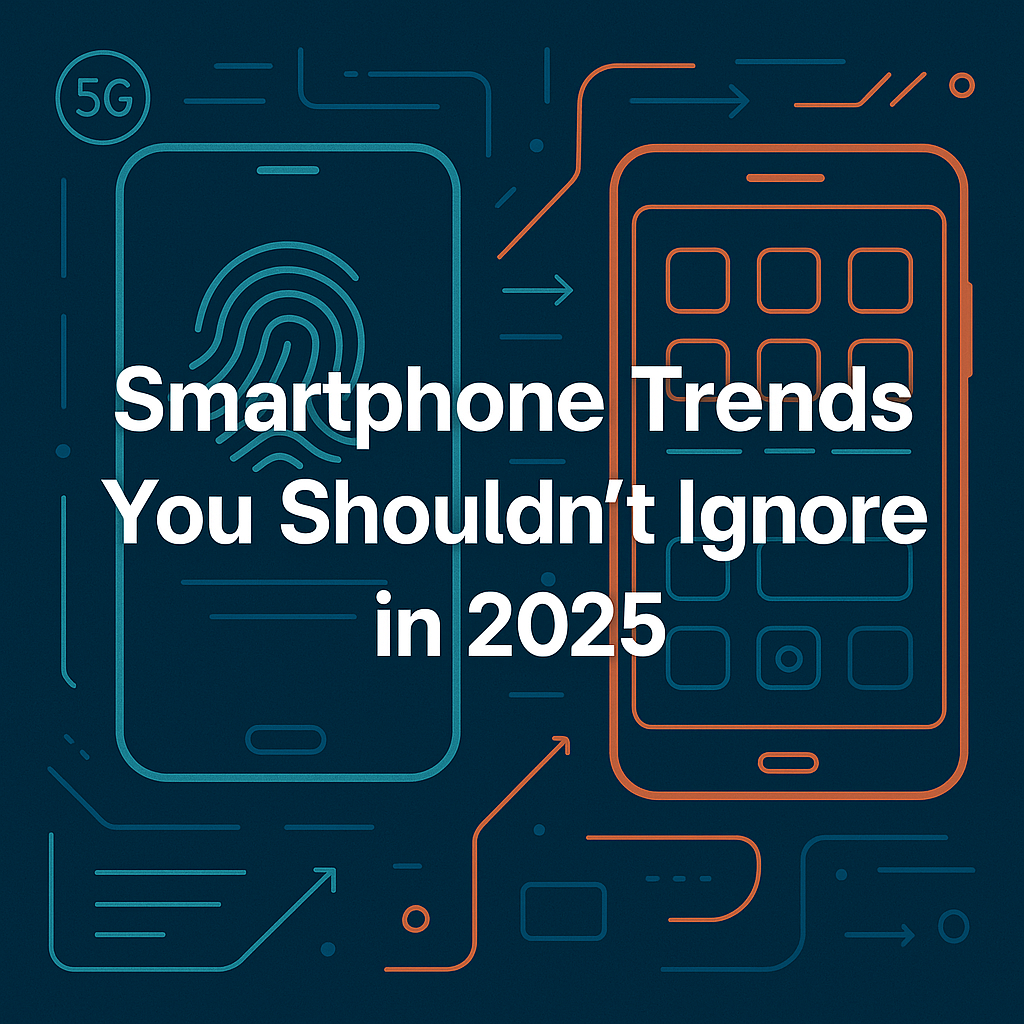A few years ago, Artificial Intelligence (AI) sounded like something out of a sci-fi movie, right? We used to imagine robots taking over the world or machines that think like humans. But fast forward to today—and AI is literally everywhere. Whether you’re asking Alexa for the weather, binge-watching Netflix, or just scrolling through Instagram, you’re using AI without even realizing it.
But here’s the real question: Is AI making our lives better, or are we slowly handing over too much control? Let’s have a casual chat about that—no jargon, just some real talk.
Where You’re Already Using AI (Without Noticing It)
Let’s be honest—you and I are already using AI a lot more than we think:
- 📱 Voice Assistants like Siri, Alexa, and Google Assistant—they understand what we say (most of the time, at least!)
- 🧠 Social Media Feeds—Ever wondered how Instagram shows you exactly what you love? That’s AI doing its magic.
- 📸 Your Smartphone Camera—From better selfies to night mode, AI’s improving your pics silently.
- 💳 Bank Alerts & Fraud Detection—When your bank warns you about suspicious activity? Yep, AI again.
- 🛒 Online Shopping Recommendations—“Customers also bought…” – That’s not a coincidence.
🎯 Example: I searched for “noise-cancelling headphones” on Google once, and boom! Amazon, Flipkart, Instagram—everywhere I turned, there were headphone ads. Creepy? A little. Smart? Definitely.
My Experience Using ChatGPT in Daily Work
So, here’s a personal story. As a digital marketing guy, I’m always writing emails, blog posts, ad copy—you name it. When I first used ChatGPT, I was like, “Let’s see what this thing can do.”
Now? It’s become part of my routine. I use it to brainstorm blog ideas, polish client proposals, or even write lines like this. But I never copy-paste. I tweak everything—because readers connect with humans, not machines.
Why AI is Your Tech Buddy (Most of the Time)
👍 Saves Time – Imagine writing 100 emails manually. AI helps automate that in a snap.
👍 Works 24×7 – Unlike us, AI doesn’t take chai breaks. It’s working behind the scenes—always.
👍 Knows What You Like – Netflix’s “Top Picks for You”? That’s personalized AI at work.
👍 Supports Doctors & Hospitals – Some tools can scan X-rays and detect health issues better than humans.
👍 Smarter Homes – Saying “turn off the lights” and it actually happens? Feels like magic, but it’s just AI.
But… Not Everything’s Rosy: The Dark Side of AI
👎 Privacy Concerns – AI needs data. Lots of it. But who controls it? And how safe is it?
👎 Built-in Bias – If AI is trained on biased data, it can make unfair decisions. That’s a real issue.
👎 Jobs Getting Replaced – From customer support to content creation, automation is taking over.
👎 Too Much Dependence – What happens when Google goes down? Or your AI assistant stops working?
Real Talk: I once forgot my meeting because my Google Assistant didn’t remind me—turns out my Wi-Fi was down. Felt like my brain took a holiday too!
How to Use AI Without Losing Your Mind (or Privacy)
Here’s what I suggest:
- 🔍 Understand the Basics – Learn a bit about how AI works. It’s not rocket science.
- 🔐 Control Your Data – Don’t click “accept all” on every site. Take two seconds to check.
- ✍️ Review AI Output – If you’re using ChatGPT or any AI tool, always edit and add your voice.
- ⚖️ Mix Tech with Common Sense – Let AI help, but don’t blindly follow it.
What’s Next? The Future Looks… Interesting
Here’s where things are heading:
- 🚗 Self-driving cars becoming mainstream
- 🧑🏫 AI-powered tutors that adapt to your learning style
- 🤖 Emotional AI that responds to your feelings (yes, like in movies!)
Cool? Definitely. But a bit scary too. The key is to lead the tech, not let it lead you.
Honestly, AI is like fire—it can cook your food or burn your house down. It depends on how you use it.
Used smartly, AI is a powerful ally. But used blindly, it can become a problem. So next time Alexa answers your question or your smartwatch nudges you to walk—thank the tech, but stay in charge.




Leave a Reply